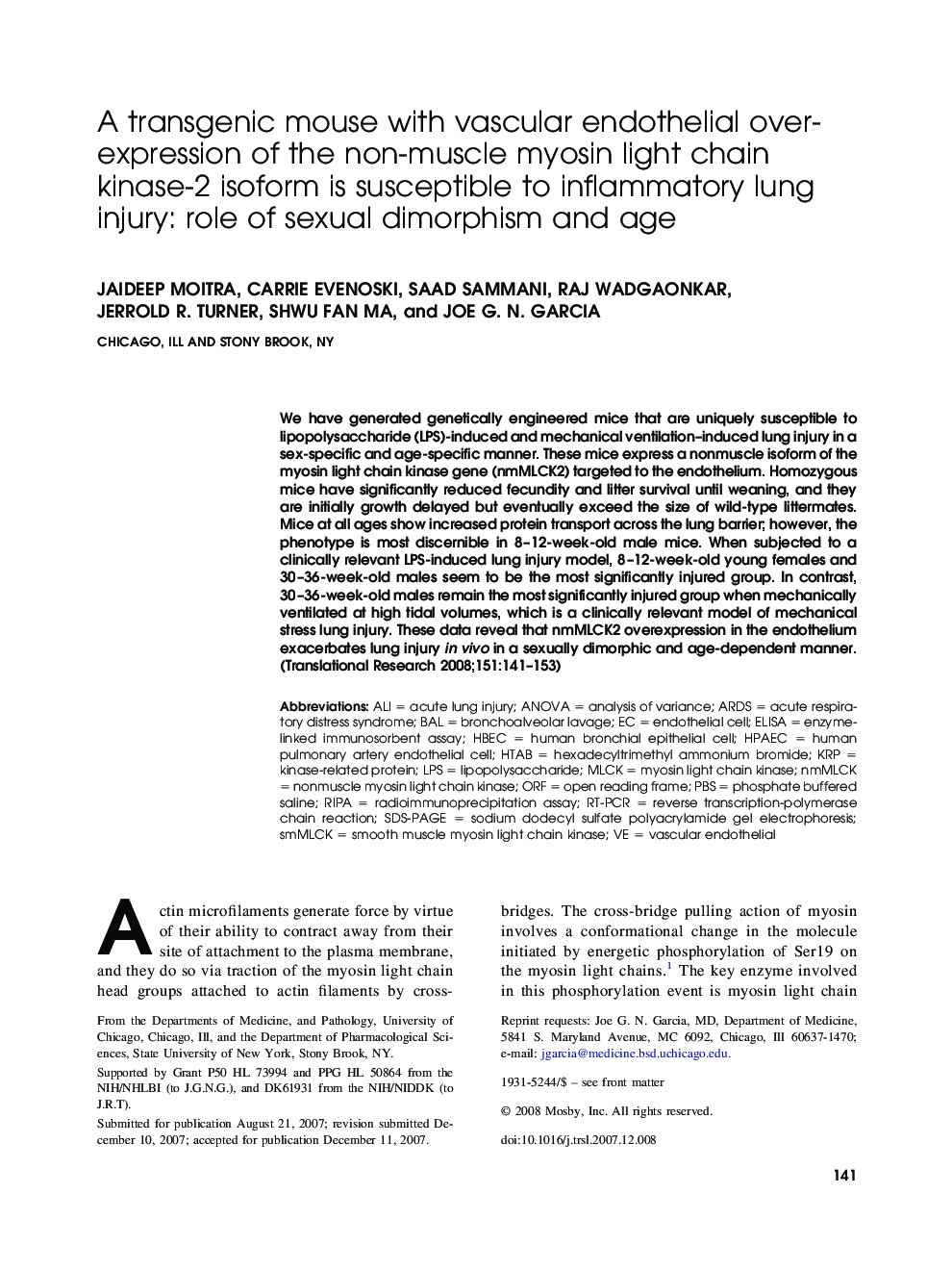| Article ID | Journal | Published Year | Pages | File Type |
|---|---|---|---|---|
| 3841382 | Translational Research | 2008 | 13 Pages |
Abstract
We have generated genetically engineered mice that are uniquely susceptible to lipopolysaccharide (LPS)-induced and mechanical ventilation-induced lung injury in a sex-specific and age-specific manner. These mice express a nonmuscle isoform of the myosin light chain kinase gene (nmMLCK2) targeted to the endothelium. Homozygous mice have significantly reduced fecundity and litter survival until weaning, and they are initially growth delayed but eventually exceed the size of wild-type littermates. Mice at all ages show increased protein transport across the lung barrier; however, the phenotype is most discernible in 8-12-week-old male mice. When subjected to a clinically relevant LPS-induced lung injury model, 8-12-week-old young females and 30-36-week-old males seem to be the most significantly injured group. In contrast, 30-36-week-old males remain the most significantly injured group when mechanically ventilated at high tidal volumes, which is a clinically relevant model of mechanical stress lung injury. These data reveal that nmMLCK2 overexpression in the endothelium exacerbates lung injury in vivo in a sexually dimorphic and age-dependent manner.
Keywords
ORFKRPRIPABALRT-PCRARDSHBECMLCKLPSHTABPBSHPAECsmMLCKAcute lung injurySDS-PAGESodium dodecyl sulfate polyacrylamide gel electrophoresisAlivascular endothelialanalysis of varianceANOVAEnzyme-linked immunosorbent assayELISAmyosin light chain kinasehuman pulmonary artery endothelial cellHuman bronchial epithelial cellEndothelial cellradioimmunoprecipitation assayAcute respiratory distress syndromePhosphate buffered salineopen reading framebronchoalveolar lavagelipopolysaccharideHexadecyltrimethyl ammonium bromidereverse transcription-polymerase chain reactionsmooth muscle myosin light chain kinase
Related Topics
Health Sciences
Medicine and Dentistry
Medicine and Dentistry (General)
Authors
Jaideep Moitra, Carrie Evenoski, Saad Sammani, Raj Wadgaonkar, Jerrold R. Turner, Shwu Fan Ma, Joe G.N. Garcia,
